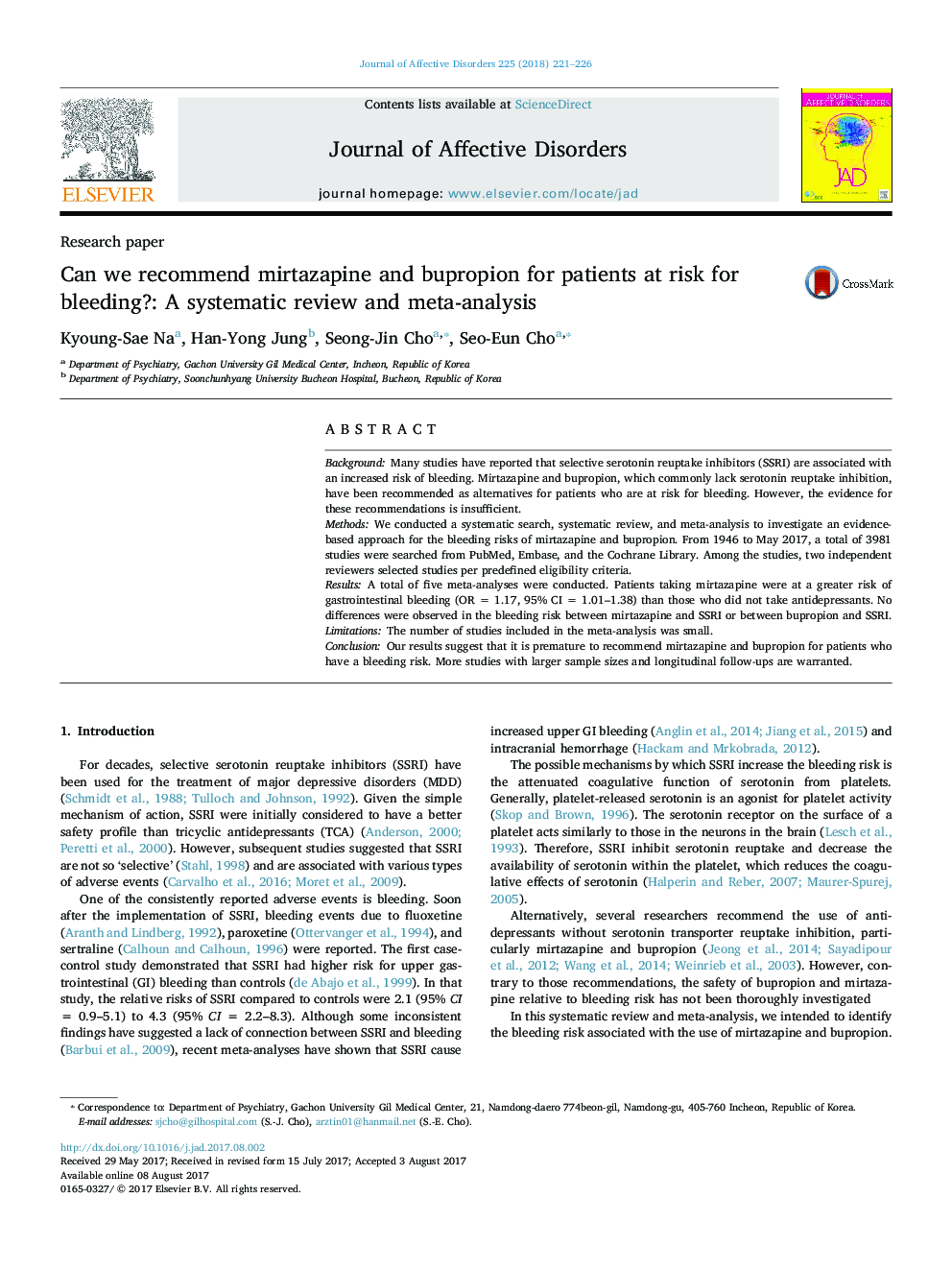| Article ID | Journal | Published Year | Pages | File Type |
|---|---|---|---|---|
| 5721712 | Journal of Affective Disorders | 2018 | 6 Pages |
â¢There is no evidence that mirtazapine and bupropion has less bleeding risk than SSRI.â¢Mirtazapine even increased gastrointestinal bleeding risk than no medication.â¢Few prospective cohort studies with mirtazapine and bupropion was conducted.â¢Future recommendations for individuals at risk for bleeding should be established based on scientific evidences.
BackgroundMany studies have reported that selective serotonin reuptake inhibitors (SSRI) are associated with an increased risk of bleeding. Mirtazapine and bupropion, which commonly lack serotonin reuptake inhibition, have been recommended as alternatives for patients who are at risk for bleeding. However, the evidence for these recommendations is insufficient.MethodsWe conducted a systematic search, systematic review, and meta-analysis to investigate an evidence-based approach for the bleeding risks of mirtazapine and bupropion. From 1946 to May 2017, a total of 3981 studies were searched from PubMed, Embase, and the Cochrane Library. Among the studies, two independent reviewers selected studies per predefined eligibility criteria.ResultsA total of five meta-analyses were conducted. Patients taking mirtazapine were at a greater risk of gastrointestinal bleeding (OR = 1.17, 95% CI = 1.01-1.38) than those who did not take antidepressants. No differences were observed in the bleeding risk between mirtazapine and SSRI or between bupropion and SSRI.LimitationsThe number of studies included in the meta-analysis was small.ConclusionOur results suggest that it is premature to recommend mirtazapine and bupropion for patients who have a bleeding risk. More studies with larger sample sizes and longitudinal follow-ups are warranted.
